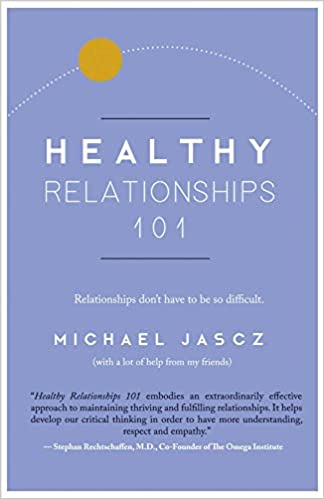
An adequate amount of each food type is essential for a healthy eating plan. This helps lower the risk of chronic illnesses such as diabetes, cancer and heart disease. One of the best ways to improve your diet is by incorporating more fruits and vegetables in your diet. They are high on nutrients, low-calorie, and high in fiber. They provide vitamins and minerals essential to good health. These tips can help to improve your dietary habits.
Apart from the importance of eating healthy, it is also important that you consider other factors that may influence your eating habits. Political, cultural, economic, and environmental factors all play a role in our habits. As a result, people's eating habits may differ from place to place and over time. One example is that a person's dietary patterns may change as they get older or learn more about the foods they like. But regardless of these factors, many of us continue to consume large quantities of unhealthy food, despite the fact that it is counterproductive.
Even though eating habits are individual, the key to a healthy lifestyle and a good diet is to set a routine that you stick to. It is best to eat only when you are hungry. You should also avoid eating when you are bored, stressed, or anxious. Find something that will help you forget about your hunger pangs and stop you from snacking too often. Perhaps you want to go for a short walk rather than grab something quick. You can also plan your meals ahead of schedule. You will have a healthy and balanced meal to start your morning.

It is important to have healthy snacks both at work and home. You want to eat as many health foods as you can. A bowl of healthy snacks should be kept in your car or at your workplace. It will help you to stay focused on making healthy meals and snacks for your family. This is a great idea. You can make the snacks ahead of your trip and have them ready to go in your lunchbox. Then, if you're going out for the day, make sure you have some healthy snack options with you.
While research has shown stress can impact eating habits, it's important to remember that many of the most popular eating habits are influenced by cultural and familial customs. Individuals are inclined to have particular preferences, especially in terms of the foods they eat. In the United States, for example, Americans eat three meals per day. Similarly, Americans typically eat at least three small meals per day, with snacks coming in between meals.
FAQ
What are the best foods to avoid when trying weight loss?
Trans fats should be avoided. Trans fats increase LDL (the harmful) cholesterol and lower HDL (the good).
Trans fats may be found in deep-fried, fast food, packaged bake goods, snack cakes, or other processed food.
These unhealthy fats can also lead to inflammation, which can cause heart disease and diabetes.
Avoid foods containing artificial sweeteners. Artificial sweeteners increase the risk of getting cancer.
These chemicals can be found in soft drinks, chewing gum, and candy bars. They can also be found in other foods like meat, poultry, and eggs.
Artificial sweeteners include saccharin and sorbitol.
The American Heart Association recommends avoiding these chemicals because they may damage DNA in cells.
How to Build Muscles Fast
Eating healthy foods and lifting weights regularly is the best way to build muscle fast.
It is best to exercise in the morning, when you feel fresh and ready to go!
Try exercises like squats and bench presses.
Use different weight training techniques and drink plenty water throughout the day.
How many calories should I eat daily?
This will vary from person-to-person. The average is 2000 - 2500 calories per day. Based on your age, gender, height and activity level, you will need to calculate how many calories you require.
Cardio Exercise: Good or Bad for Your Health?
Cardiovascular exercise has many advantages. It improves blood circulation, strengthens heart muscle, gives you energy, and can even help you lose weight.
Cardiovascular exercise includes running, biking, hiking, swimming, tennis, basketball, soccer, volleyball, football, etc.
It is important that cardio exercises are not performed at high intensities. This could cause injury.
Only do the cardio exercise when you are feeling good.
Never push yourself past your limits. This could lead to injury.
Begin by warming up before engaging in cardio exercise. Start slowly increasing your intensity.
You must always listen to what your body is telling you. If you feel pain, stop doing cardio exercise immediately.
It is also advisable to rest after a cardiovascular workout. This will give your muscles time for recovery.
Cardiovascular exercise is essential for losing weight.
It is the best way for you to lose calories and decrease belly fat.
What is a good gym routine for you?
Regular exercise is key to staying healthy. You don't have to do the same type of exercise every day, it doesn't really matter. Consistency is key. For you to get results, you have to stick with it for a longer period of time.
Begin by walking for a few minutes each day. Increase the time you spend exercising each day until you can do 30 minutes. This could be running, biking, swimming or weight training.
Try to get active every day. You should not miss any sessions unless there is a good reason.
Make sure to wear appropriate clothing and footwear for outdoor exercise. It is important to take into account the weather conditions, and how they may affect your ability to exercise safely.
When exercising, ensure you drink lots of water. It is best to avoid alcohol while you're exercising. Also, don't drink caffeine-rich beverages like tea, coffee, or cola. These drinks may give you energy but also dehydrate your body.
It's common to feel tired after your first workout. You'll feel more energetic and refreshed if you keep going with your exercise program.
Is Cardio Better Than Strength Training?
Both are equally excellent. However, cardio is more effective if you're looking to bulk up faster.
Cardio burns more calories in a minute than strength training and more fat.
Strength training helps build muscle mass. But it takes longer than cardio to accomplish this goal.
Statistics
- According to the American Academy of Dermatology (AAD), men over 50 are at a heightened risk of developing it. (healthline.com)
- According to the American Heart Association, blood pressure should be checked at least once every two years, beginning at age 20. (my.clevelandclinic.org)
- Cardmembers earn 5% Back at Amazon.com with a Prime Credit Card. (amazon.com)
- 10 pounds in a month is likely during a lean bulking phase, especially for beginners. (muscleandstrength.com)
- The PRS enabled risk stratification for overall prostate cancer and lethal disease with a four-fold difference between men in the highest and lowest quartiles (HR, 4.32; 95% confidence interval [CI], 3.16-5.89). (pubmed.ncbi.nlm.nih.gov)
External Links
How To
What nutrients does a person need every day?
Daily nutrition is essential for men's healthy growth. Your body needs vitamins, minerals and nutrients as well as carbohydrates, proteins, fats, carbohydrate, fiber, and other essential components.
Males also require specific nutrients at certain times of the day. For example, when you sleep, your body uses energy from food to make hormones, antibodies, and enzymes. Protein is needed to build muscles and repair tissue damaged when you wake up.
Your body will burn fat at night and store the extra energy as a form of glycogen. During this time, your body needs fewer calories but still needs sufficient nutrients. You can have a snack at night if you feel hungry.
To fuel your muscles while you train, you will need sufficient carbs as well as protein. Muscle soreness can occur if you work out hard.
To prevent this, you should eat carbs as well as protein within the first two hours after training. To get energy from glucose, your body will start to degrade stored glycogen.
Also, protein must be consumed immediately after your workouts. This will prevent muscle tissue from being damaged while you sleep.
Your body produces lactic acid during high levels of physical activity. The body produces lactic acid when there is too much activity. This can cause fatigue. Eat foods high in carbohydrate, such as fruits, vegetables, to avoid this.
Carbohydrates can give your body the energy it requires to recover from intense exercise.
Additionally, lean meats, fish and eggs, dairy products, yogurt, cream, cheese, yogurt and beans can be added to your diet.
These foods all contain high-quality proteins. Protein promotes muscle growth, and helps repair damaged tissues. Protein also supplies the amino acids your body requires to make sex hormones, such as testosterone.
To maintain healthy skin, hair, and joints, you also need sufficient dietary fats. Healthy men need to consume between 20%-35% of their total calories from fat.
Fat helps keep your heart strong and protects against cancer. It is essential for proper brain function.
You can get most of the fat you need from vegetable oils like olive oil, sunflower oil, corn oil, soybean oil, peanut oil, and safflower oil.
These oils are high in monounsaturated fatty acids (MUFAs). MUFAs are good for lowering cholesterol and reducing inflammation. They protect your cells against free radical damage.
Saturated Fats (SFAs), which are mostly found in animal products like meat, butter, and dairy products, include LDL ("bad") cholesterol. SFAs raise LDL ("bad") cholesterol and increase triglycerides. They promote weight gain as well as belly fat.
Polyunsaturated fats (PUFAs) are found in plant-based sources like vegetable oils, nuts, seeds, and grains. PUFAs help improve cardiovascular function, and lower inflammation. They can also control blood sugar levels and cholesterol.
Erectile dysfunction is common in men with low HDL ("good") cholesterol. A high intake of saturated fats leads to higher levels of bad cholesterol.
Men who eat a lot of red meat or pork develop prostate problems because they contain large amounts of nitrates. If cooked at high temperatures, the nitrates become nitrosamines. These compounds can cause cancer.
Many processed meats are high in nitrites, and other dangerous chemicals. You should avoid them.
The American Heart Association recommends limiting red meat intake to two meals per week. Instead, choose poultry and fish, legumes, tofu or whole grain bread as your main source of protein.